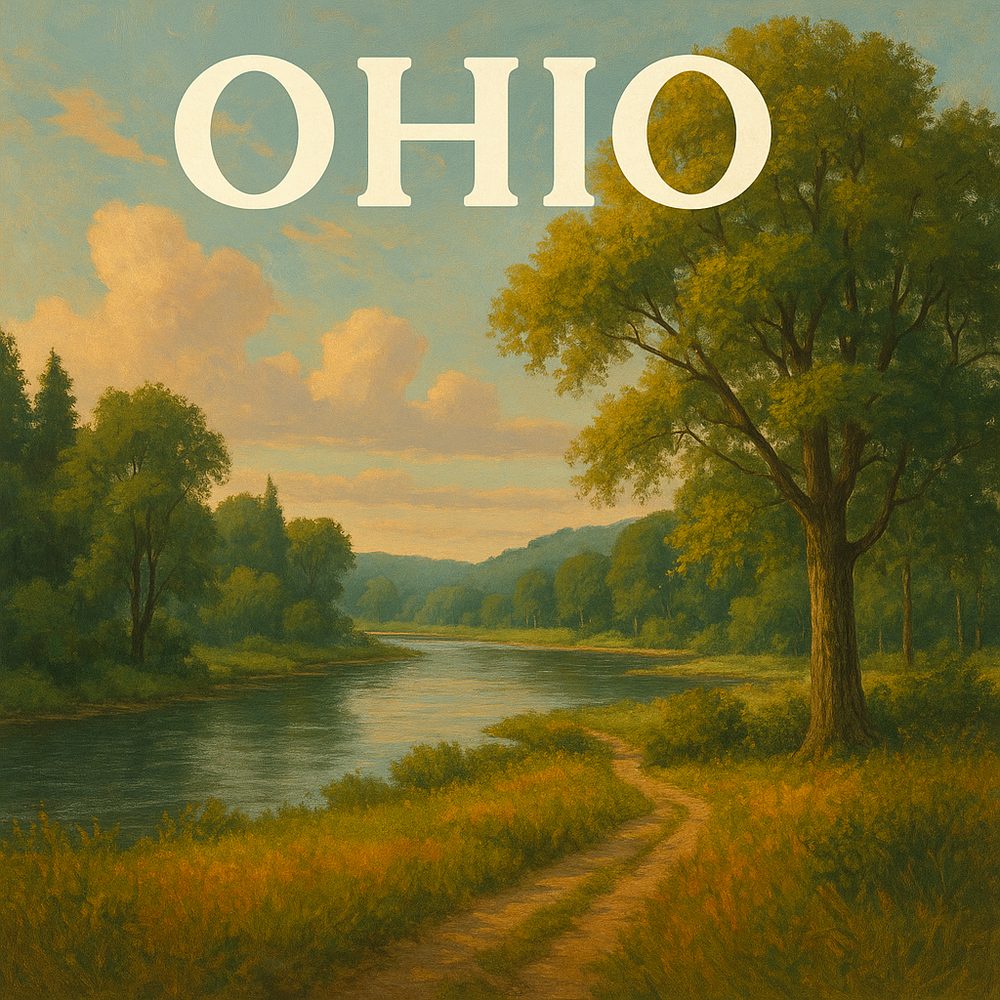The Strangest Road Names in Ohio and How They Got Them

Traveling through Ohio, one quickly notices that its roads tell stories as rich and quirky as the state’s history itself. Just outside Cincinnati, about a 20-minute drive east, lies the small town of Milford, home to a stretch of road called “Hellbender Drive.” Named after the rare hellbender salamander native to Ohio’s streams, this winding route near East Fork State Park offers a scenic introduction to local wildlife. The park’s rugged trails, such as the White Oak Trail loop, provide hikers with views of the park’s rolling hills and the East Fork of the Little Miami River. Hellbender Drive captures the mystique of the salamander’s elusive nature, and visiting during spring—the breeding season—heightens your chance of spotting these remarkable creatures in the wild.
Further north, near Cleveland, the Cuyahoga Valley National Park features a charmingly odd road called “Moses Cleaveland Drive,” named not for whimsy but after the city’s founder. This road winds through the Boston area of the park, close to the historic Canal Visitor Center. While the name itself isn’t strange, the story behind it ties to the city’s early history and the region’s canal system, which reshaped transportation in the 19th century. Exploring the Towpath Trail here, an easy 20-mile route along the Ohio & Erie Canal, reveals how this once-bustling corridor became a leisure hotspot. Autumn is particularly stunning here, as the foliage bursts into bright reds and oranges, contrasting with the old stone locks and historic buildings.
Heading southwest toward Dayton, you’ll find a curious road in the town of Yellow Springs called “Xenia Avenue.” While it sounds straightforward, its name reflects a deep connection to the neighboring city of Xenia, about 15 minutes east. This avenue is central to the town’s vibrant arts scene and leads toward Glen Helen Nature Preserve, a 1,000-acre conservancy boasting diverse ecosystems and more than 15 miles of hiking trails. Glen Helen’s cliffs and ancient forests inspire artists and nature lovers alike, making Xenia Avenue feel like a gateway to creative and natural discovery. Visiting in late spring, when wildflowers bloom and migratory birds return, adds a special magic to the experience.
In northeast Ohio, outside the historic town of Marietta by the Ohio River, you’ll encounter “Muskingum Drive.” This road traces the path along the Muskingum River, an essential waterway in Ohio’s early settlement days. Marietta’s blend of well-preserved 19th-century architecture and riverfront charm makes a drive along Muskingum Drive especially rewarding. The nearby Campus Martius Museum offers interactive exhibits about the early frontier life and Native American heritage that shaped the region. Spring floods and fall colors dramatically reshape the riverbanks here, so timing your visit to coincide with these seasonal changes provides a vivid sense of nature’s power and the river’s historical importance.
Near Akron, about 40 minutes south of Cleveland, the “Rubber City Highway” stands out as a nod to the city’s industrial past. Akron was once the world’s center for tire manufacturing, and driving this highway transports visitors through neighborhoods that grew alongside the booming rubber industry. The Akron Art Museum, with its blend of modern architecture and rotating exhibitions, serves as a cultural counterpoint to the industrial legacy. Exploring the Rubber City Highway on a crisp fall day reveals the city’s layered history—from factories to galleries—while the nearby Cuyahoga Valley National Park offers a nature-filled escape just beyond the urban sprawl.
Not far from Columbus, in the small village of West Jefferson, you’ll find “Moonshine Road.” While it conjures images of illicit distilling, the name actually honors a local family with the Moonshine surname. The nearby Battelle Darby Creek Metro Park is a highlight for visitors, featuring the Highbanks Trail—a moderate 5.3-mile loop through restored prairie and woodland ecosystems. The park’s spring wildflower blooms and occasional bison grazing make it a destination that combines natural beauty with a touch of historical irony. Moonshine Road’s name hints at secretive pasts, but today it leads you to open landscapes and peaceful trails.
Lastly, in the northern reaches near Toledo, there’s “Sylvania Avenue,” a major thoroughfare in the city of Sylvania, about 20 minutes west of Toledo’s downtown. The name derives from the Latin word for “woods,” reflecting the area’s dense forests before urban development. The nearby Secor Metropark offers trails along the Ottawa River, where visitors can kayak, bike the paved paths, or watch wildlife at the wetland overlooks. Sylvania Avenue channels the city’s transformation from forest to suburb, and the park nearby offers a chance to reconnect with the natural roots of the region. Early summer evenings here provide perfect light for birdwatching and peaceful walks along the water.
Each of these roads in Ohio reveals something unique about the state’s past, culture, and landscape. Whether inspired by rare amphibians, founders’ names, industrial legacies, or natural features, their stories come alive most vividly when paired with the places that surround them. Traveling these routes offers more than just a way to get from point A to B; it’s a way to experience Ohio’s layered identity one mile at a time.